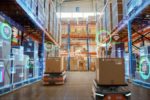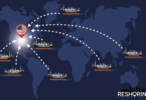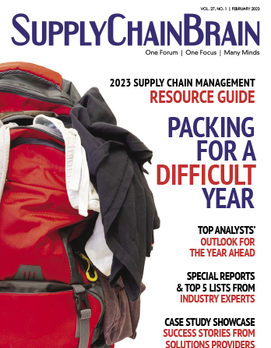Food & Beverage
Food & Beverage
The latest supply-chain news, analysis, trends and tools for executives in the food and beverage industries. Learn how food and beverage companies and their suppliers around the world are managing the flow of products across all channels of the enterprise. Experts sound off on forecasting and demand planning, supply-chain visibility, logistics outsourcing, inventory optimization, transportation management, warehouse management, supply-chain security, corporate social responsibility and more.












